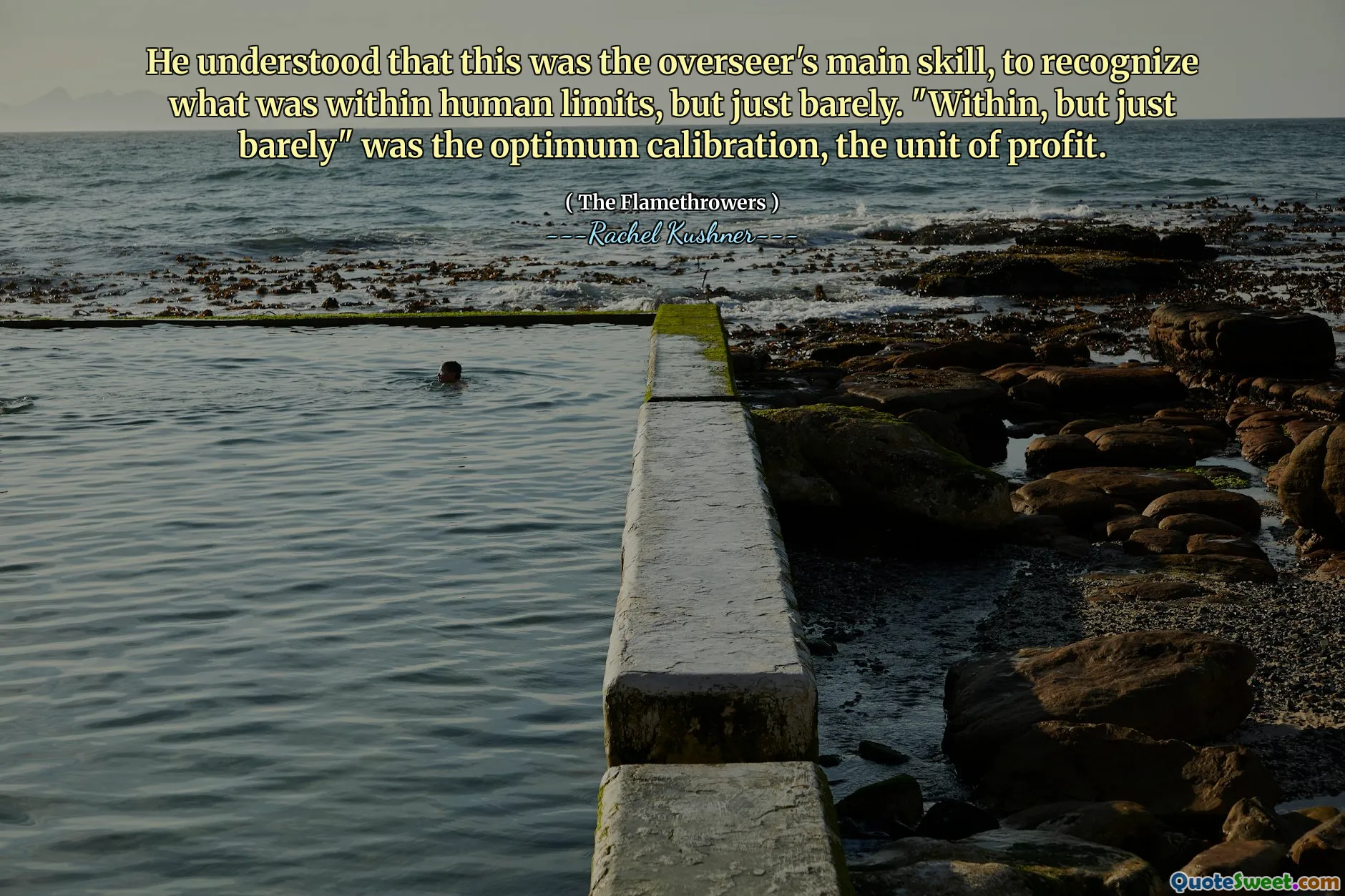
He understood that this was the overseer's main skill, to recognize what was within human limits, but just barely. "Within, but just barely" was the optimum calibration, the unit of profit.
This quote from Rachel Kushner's 'The Flamethrowers' delves into the complex dynamics of power, control, and human limitations. The overseer, in this context, embodies a figure of authority who possesses the distinct skill of identifying the precise threshold of human endurance. Recognizing what individuals can endure without breaking is a subtle art—one that requires a nuanced understanding of human psychology and physical límites. The phrase 'within, but just barely' underscores a delicate balance: pushing individuals to their limits can maximize productivity and profit but risks crossing boundaries that might lead to failure or unrest. The pursuit of this optimal point reveals the underlying tension between exploitation and empathy, control and chaos. It suggests that those in power, whether literal overseers or metaphorical figures, must have an instinct for gauging human resilience and dissecting boundaries that are often invisible. This calibration becomes a crucial strategic tool—the 'unit of profit'—highlighting how economic interests are sometimes intertwined with the manipulation of human capacity. The quote prompts a reflection on the ethics of such a practice; it raises questions about how societies, organizations, or individuals balance profitability against the human cost. It invites us to consider how the pursuit of efficiency can lead to the marginalization and exhaustion of individuals, often walking a fine line supported by skillful judgment. Kushner's words beautifully encapsulate the fragile interplay between control and vulnerability, urging us to meditate on where boundaries are drawn and who benefits from knowing just how far they can be pushed.








